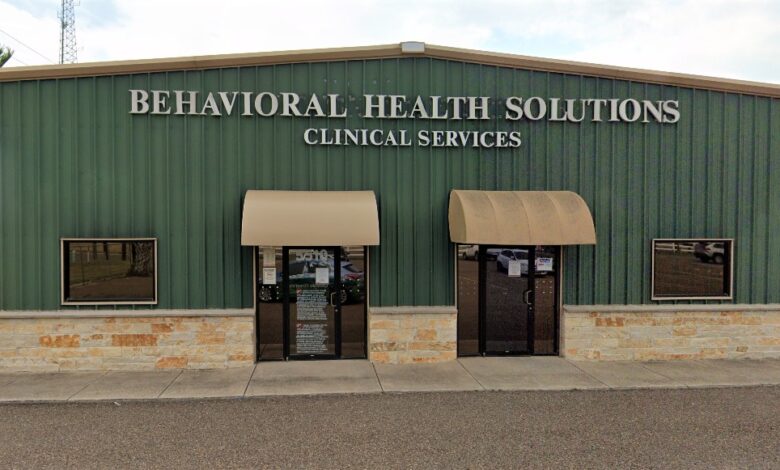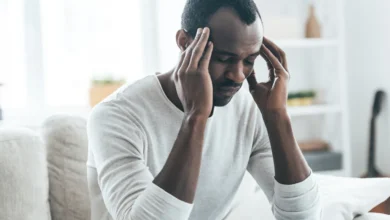The Ultimate Guide to Behavioral Health Solutions: Understanding Your Options

Behavioral health is critical for everyone. It influences how we think, feel, and behave. Good behavioral health helps us cope with challenges and stress. When we talk about behavioral health, we refer to mental health, emotional wellness, and substance use. This guide will help you understand different behavioral health solutions and how to find the right one for you.
What is Behavioral Health?
Behavioral health means how we take care of our minds and feelings. It includes our ability to handle stress, relate to others, and make choices. Our daily lives, relationships, and work can all be influenced by our behavioral health. When people have problems in these areas, it can affect their health and happiness. Understanding behavioral health is the first step towards finding solutions that work for you.
Why is Behavioral Health Important?
Behavioral health is important for several reasons. It helps us deal with daily challenges. It also builds resilience, which is the ability to bounce back from difficult situations. When we feel good mentally, we are more likely to engage in positive activities. Good behavioral health can lead to improved physical health, better relationships, and increased productivity.
Signs You May Need Help
At times, everyone could use a bit of support. Certain signs suggest it might be time to reach out for help. These include feeling persistently sad or anxious, having difficulty concentrating or making decisions, withdrawing from loved ones, noticing changes in sleep or eating patterns, and relying on drugs or alcohol to manage emotions.
If you notice these signs, it might be helpful to talk to someone who understands.
Types of Behavioral Health Solutions
There are many types of behavioral health solutions available. It’s important to find the one that fits your needs.
Counseling or Therapy
One common solution is counseling or therapy. This is when you talk to a trained professional about your feelings and thoughts. They help you understand your problems and find ways to cope. There are different types of therapy, such as:
Cognitive Behavioral Therapy (CBT)
This type focuses on changing negative thought patterns.
Dialectical Behavior Therapy (DBT)
DBT is helpful for people with intense emotions and relationships.
Group Therapy
This is when you meet with others who have similar experiences. It can be supportive to share and listen. Therapy can help you build skills to handle life’s challenges.
Medication
Sometimes, behavioral health problems may require medication. Doctors can prescribe drugs that help balance brain chemistry. For example, antidepressants can help people who have depression. It’s important to work with a healthcare provider to find the right medication and dosage.
Support Groups
Support groups are a great way to connect with others facing similar challenges. These groups offer a safe space to share experiences and learn from each other. They can be helpful for people dealing with addiction, depression, or other issues. The support from peers can motivate and inspire you.
Online Resources
In today’s digital world, many resources are available online. Websites and apps can provide information, support, and activities to improve your mental health. Some offer online therapy, allowing you to connect with a therapist from your home. These digital solutions are often convenient and flexible.
Lifestyle Changes
Making changes to your daily life can also improve your behavioral health. Simple things like regular exercise, a healthy diet, and adequate sleep can make a big difference. Engaging in hobbies, spending time with loved ones, and practicing relaxation techniques can boost emotional wellness.
Finding the Right Solution for You
Finding the right behavioral health solution can take time. Start by identifying what you need. Ask yourself questions like: What are my main concerns? Have I tried anything that worked before? Do I prefer talking to someone face-to-face or online? Try to research the options that interest you. You can also ask friends or family for advice or referrals. Remember, it’s okay to seek help. Taking the first step is often the hardest but also the most important.
When to Seek Immediate Help
Understanding more about alcohol and anxiety is essential for those seeking to improve their behavioral health. Many individuals turn to alcohol as a means of coping with anxiety; however, this can lead to a cycle of dependence and increased distress. While alcohol may provide temporary relief, it often exacerbates anxiety in the long run, creating a harmful loop of consumption and withdrawal.
Therefore, it is crucial to address both alcohol use and anxiety as interconnected issues, seeking healthier coping mechanisms and support systems to break free from this cycle. Remember, exploring more about alcohol and anxiety can be a vital step in your journey to better mental health.
The Role of Anxiety Therapy
Anxiety therapy plays a significant role in helping individuals manage their symptoms and improve their overall well-being. The therapeutic process typically involves various approaches tailored to the individual’s needs, such as cognitive-behavioral therapy (CBT), which focuses on changing negative thought patterns associated with anxiety.
Through anxiety therapy, clients can learn effective coping strategies, gain insight into their triggers, and develop a toolkit to navigate everyday stressors. Seeking professional help can be a pivotal step in reclaiming control over one’s mental health and fostering resilience against anxiety’s challenges.
The Importance of Comprehensive Anxiety Treatment
Anxiety treatment is essential for individuals struggling with persistent feelings of worry or fear that interfere with daily life. A well-rounded approach might mix therapy, medication, and lifestyle tweaks, all shaped around what you specifically need.
Remember, tackling anxiety with a holistic view can really make a difference. It helps you manage symptoms better and boosts your overall quality of life. Working with mental health pros who offer guidance and support can empower you to take charge of your anxiety and build lasting coping skills.
Navigating Your Path to Effective Behavioral Health Solutions
Behavioral health solutions come in many forms. Whether it’s therapy, medication, support groups, or lifestyle tweaks, there are plenty of options to help you on your journey to better mental health. Knowing what’s out there can really empower you to make informed choices. Remember, asking for help is a sign of strength, and you’re not alone in this. Your path to better behavioral health starts with just one step.
For more on this content, visit the rest of our blog!



